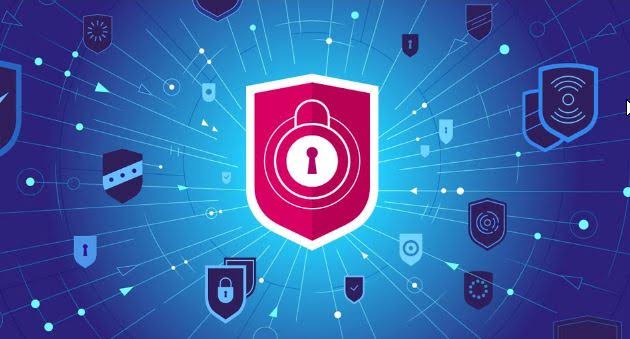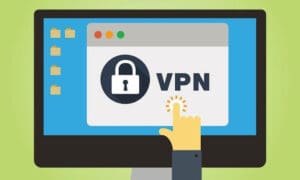Introduction
In an increasingly interconnected world, o onlinesecurity has e emergedas a paramount challenge for p individualsand groups alike.ackers are constantly on the prowl, in search of vulnerabilities to exploit and compromise sensitive data. Fortunately, Virtual Private Networks (VPNs) have emerged as a powerful device to guard your online activities and protect you from potential threats. In this article, we are able to explore how diebestenvpn VPNs work and the ways in which they guard you from hackers. So, let’s dive in and discover the importance of staying one step ahead in the realm of cybersecurity.
Understanding the Basics of VPNs
What is a VPN?
A VPN, or Virtual Private Network, is a technology that establishes a stable and encrypted connection between your device and the internet. It creates a personal community inside a public community, permitting you to get access to the internet securely and privately.
How does a VPN work?
When you connect to a VPN server, all of your visitors are routed via an encrypted tunnel. This tunnel shields your facts from prying eyes, including hackers, authorities, or Internet Service Providers (ISPs). The VPN server acts as a middleman between your device and the websites or online services you get access to, making sure your records stay exclusive and stable.
Ensuring Privacy and Anonymity
Encryption and Data Protection
One of the primary features of a VPN is that it encrypts your internet traffic, making it unreadable to unauthorized individuals. By using strong encryption algorithms, VPNs make sure that your sensitive records, such as passwords, economic records, or personal messages, cannot be intercepted or deciphered by hackers.
Masking Your IP Address
Your IP address is a unique identifier that reveals your location and online activities. VPNs help protect your privacy by changing your actual IP address to match the IP address of the VPN server you connect to. This process masks your online identification, making it hard for hackers to trace your activities back to you.
Bypassing Geographic Restrictions
Accessing Restricted Content
Many online offerings, consisting of streaming platforms or social media networks, impose geographic restrictions on their content. With a VPN, you could conquer these barriers by connecting to a server located in an exclusive area. By doing so, you may skip the regulations and get admission to the content material as if you were physically found in that region.
Overcoming Censorship
In a few nations, governments impose strict net censorship, restricting access to certain websites or online offerings. VPNs enable customers to circumvent these restrictions by encrypting their site visitors and tunneling them through servers positioned in more permissive jurisdictions. In this manner, individuals can reclaim their freedom of expression and get admission to records without constraints.
Securing Public Wi-Fi Connections
Risks of Public Wi-Fi
Public Wi-Fi networks determined in cafes, airports, or resorts are regularly unsecured and prone to hacking attempts. Cybercriminals can intercept facts transmitted over these networks, compromising sensitive facts such as login credentials or economic information. This is where VPNs come to the rescue.
Mitigating Risks with a VPN
By connecting to a VPN before gaining access to public Wi-Fi, you create a secure tunnel that shields your data from potential eavesdroppers. VPNs encrypt your internet traffic, making it indecipherable even if intercepted. This added layer of safety ensures that your online sports stay private and guarded, irrespective of the community you’re related to.
Protecting Against cyberattacks
Man-in-the-Middle Attacks
Man-in-the-Middle (MitM) attacks arise when hackers intercept communications among parties, posing as intermediaries. They can listen in on conversations, steal sensitive statistics, or alter facts without the sufferers’ expertise. By using a VPN, you establish an encrypted connection that makes it extremely tough for hackers to execute MitM attacks efficiently.
DDoS Attacks
Distributed Denial of Service (DDoS) assaults the intention to overwhelm a website or online service with the aid of flooding it with an amazing quantity of visitors. VPNs assist in guarding against DDoS attacks by dispensing visitors across multiple servers, preventing the attackers from pinpointing the target and rendering their efforts futile.
VPNs for Business Security
Secure Remote Access
In the trendy digital landscape, remote painting has come to be increasingly common. VPNs play an essential role in making sure steady remote access to agency resources. Employees can hook up with their business enterprise’s community through a VPN, encrypting their communications and safeguarding sensitive information from capability breaches.
Safeguarding Confidential Data
Businesses take care of large quantities of private and proprietary data. VPNs offer a further layer of protection for this data, especially when transmitted over public networks. By enforcing VPNs, groups can mitigate the dangers of information leaks, unauthorized access, and different cyber threats.
Choosing the Right VPN
Factors to Consider
When choosing a VPN, several factors have to be taken into consideration. These encompass the VPN issuer’s recognition, encryption protocols supplied, server locations, connection pace, and consumer-pleasant interface. Additionally, it is crucial to evaluate the company’s privacy coverage and ensure they have strict no-logs coverage to protect your information.
Popular VPN Providers
There are several VPN vendors available in the marketplace, each providing their own specific capabilities and advantages. Some well-known options encompass NordVPN, ExpressVPN, CyberGhost, Private Internet Access (PIA), and Surfshark. It is really useful to analyze and compare different vendors to discover the one whose quality fits your needs.
Conclusion
As cyber threats retain to conform, it is important to stay one step in advance in defensive your on line sports. VPNs provide a sturdy technique to protect your privacy, make certain anonymity, and shield you from hackers. By encrypting your net visitors, masking your IP deal with, and supplying secure access to public Wi-Fi networks, VPNs beautify your on-line protection and allow you to pass geographic regulations. Whether for personal or commercial enterprise use, investing in a reliable VPN is a sensible selection in an more and more interconnected international.
FAQs
- What is the pleasant VPN for on line security?
- There are several especially appeared VPN carriers known for his or her strong safety capabilities, along with NordVPN, ExpressVPN, and CyberGhost.
- Can a VPN defend towards malware?
- While VPNs in the main focus on encrypting your internet visitors and protective your privateness, they can offer an additional layer of safety against sure sorts of malware by means of blocking off malicious websites or stopping unauthorized access.
- Are loose VPNs as steady as paid ones?
- Free VPNs may offer limited security features or impose records caps and regulations. Paid VPNs frequently offer extra sturdy security and additional blessings, making them a safer choice.
- Can I use a VPN on my cell devices?
- Yes, most VPN vendors offer dedicated apps for mobile gadgets, allowing you to steady your internet connections on smartphones and tablets.
- Do VPNs gradually slow down net speed?
- VPNs can potentially affect your internet speed due to their encryption and routing techniques. However, professional VPN companies strive to decrease this impact and provide optimized servers for higher overall performance.































